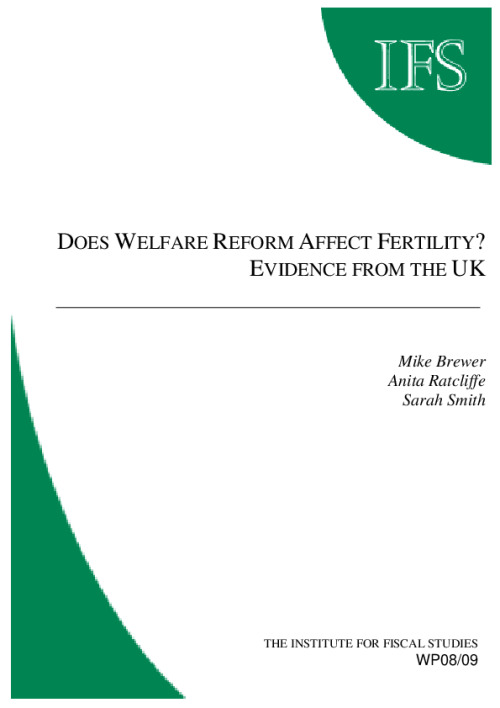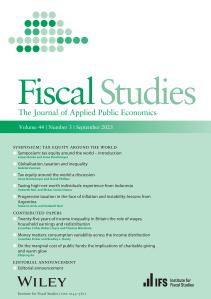Downloads

wp0809.pdf
PDF | 281.71 KB
In 1999 the UK government made major reforms to the system of child-contingent benefits, including the introduction of Working Families' Tax Credit and an increase in means-tested Income Support for families with children. Between 1999-2003 government spending per-child on these benefits rose by 50 per cent in real terms, a change that was unprecedented over a thirty year period. This paper examines whether there was a response in childbearing. To identify the effect of the reforms, we exploit the fact that the spending increases were targeted at low-income households and we use the (exogenously determined) education of the woman and her partner to define treatment and control groups. We argue that the reforms are most likely to have a positive fertility effect for women in couples and show that this is the case. We find that there was an increase in births (by around 15 per cent) among the group affected by the reforms.
Authors

Mike Brewer

Research Associate University of Bristol
Sarah is a Research Associate at the IFS and Head of the Department of Economics at the University of Bristol with interest in applied microeconomics.

CMPO, University of Bristol
Working Paper details
- DOI
- 10.1920/wp.ifs.2008.0809
- Publisher
- IFS
Suggested citation
M, Brewer and A, Ratcliffe and S, Smith. (2008). Does welfare reform affect fertility? Evidence from the UK. London: IFS. Available at: https://ifs.org.uk/publications/does-welfare-reform-affect-fertility-evidence-uk-1 (accessed: 30 June 2024).
More from IFS
Understand this issue

Election Special: Your questions answered
27 June 2024

Election Special: The big issues politicians haven't spoken about
25 June 2024

Election Special: The Labour manifesto explained
14 June 2024
Policy analysis

How would the parties’ tax and spending plans affect Scotland and Wales?
28 June 2024

What are the parties’ plans for benefits and taxes?
24 June 2024

Plaid Cymru manifesto: a response
13 June 2024
Academic research

Intertemporal income shifting and the taxation of business owner-managers
24 January 2024

Insurance, redistribution, and the inequality of lifetime income
2 November 2023

Symposium: tax equity around the world - introduction
11 September 2023